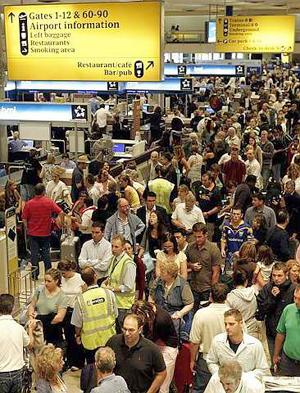Aerie Rahman discusses travelling as a means and as an end.
“The real voyage of discovery consists not in seeking new landscapes, but in having new eyes.” – Marcel Proust
Why do we travel? Ask any businessman with links to UMNO who annually takes his first wife and numerous children to holidays in the West, and he would probably answer “to makan angin”. Travelling is treated as an end in itself and not as a means to an end.
This view is shared by couples on honeymoon or those who wish to rejuvenate themselves after a year of slogging at work. Travelling is done because it is relaxing and seems to be a form of escapism from the familiarities of home. For them, travelling is, while in physical terms an active act, it is in mental terms a passive act.
It is a fact that most of our leaders have travelled or even studied abroad. BN MPs regularly make “lawatan sambil belajar” trips overseas. Thus, it seems rather curious that people like Najib Razak, Hishamuddin Hussein, Zulkifli Noordin and various BN MPs who were probably exposed to various cultures abroad — unless they were cloistered among the Malaysian community — retain an ethnocentric worldview.
For them, race is put as a premium over everything else. It’s difficult to accept that 56 years after Merdeka, political parties are still premised on racial exclusivity and racial rhetoric is still employed in the political discourse. This is an elephant of an anachronism when 21st century civilisation is trying to move past narrow racial compartmentalisations. Going abroad does not seem to be an antidote to ethnocentrism, it appears.
I’d like to think that these BN people who enjoy making trips abroad (with the Motherland, England being an all-time favourite) are travelling the wrong way. Travelling is done not to widen the parochial mentality that is hardwired in their minds but is done just for pure leisure.
We travel to a certain destination because we’ve heard or read about it (more to hearing for BN members). To validate the information given, we want to experience it with our own senses. From the enduring buildings in Italy to the romantic atmosphere in Paris or the dour air in London, we travel to experience different things in life.
Nevertheless, travelling should not end there. I have a distaste for tour groups because it detaches us from the realities of local life. We are divorced from what happens on the ground by being ensconced in our group, guided by a native. The same goes for chain luxury hotels, with its uniform design all over the world.
Travelling must be seen as an opportunity to broaden our mental horizon. It’s not sufficient to acknowledge the difference between us and those in other countries. That’s just truism, it’s a bare fact. It is essential to reflect on why things are different in other countries and appreciate the value of this difference.
When travelling, we see that the environment determines many aspects of reality. Different cultures persist because different people in different places face different problems. However, like cause does not necessarily lead to like effects. Even if the problems are similar, the way people respond to similar problems may not be the same.
Difference does not imply inferiority. It should be internalised, accepted and celebrated as it shows how beautiful humanity can be. We must go beyond tolerance, which implies some form of tension, and aim for celebration, which is a sheer enjoyment of how different backgrounds can come together as one, under humanity.
Travelling can deconstruct long-held stereotypes that are a product of the social conditioning that we live in. Seeing the realities of a culture for yourself would show that stereotypes have a tendency to be fallacious.
To be able to do this, however, one must be able to immerse oneself in the cultural milieu of the country that one is in. There’s no point in going abroad if you end up hanging out with your own people, staring at beautiful edifices without knowing why the locals built it or even failing to chat with the locals, trying to find out about their worldview and thought processes.
We are aware of the saying to not live like a frog under a coconut shell. But if the shell is removed and the frog himself still resists from being exposed to the richness the world has to offer, the effect is still the same. Just ask Ibrahim Ali.
Travelling is a privilege that is not available to all. But for those who are able to do so, it’s time to reflect on why we really travel.
Featured image from The Star Online.


I'm in reality stimulated by means of manner of this wonderful stuff. I continuously opt to observe the first-rate content material and this component i discovered in you put up. thanks for sharing
Saluton
I certainly see the point of travelling and also self-reflection in the days.
I wish the youngsters would travel more with less cost if you learn Esperanto
https://www.loyarburok.com/2011/11/21/travelling-p…
That said, if you are like me and do not have that opportunity to travel, you can broaden your horizons by talking to people from other countries. You can talk to Indonesians, Bangladeshis, Nepalis, mainland Chinese, etc. We have an abundance of people with different experiences and worldviews right in our country.
See, if Najib had talked to these people, or even his own citizens, he would have realized that BR1M of RM500 will NOT feed a family for a whole year.
Now that i've read more of your writings, i must say that I like the way you think. keep it up!